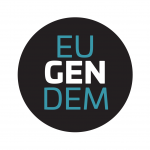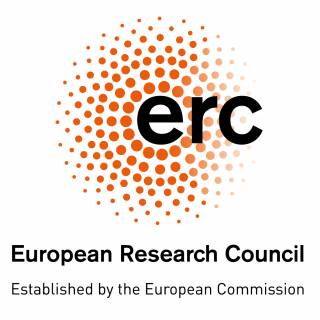 The results of last week’s European Parliament’s elections will be confirmed across the continent in the coming days. After a long and exciting election night, our research project takes a look at some of the key results from the point of view gender and gender equality – the one issue that electrified and politicized the election debate in a number of countries from Poland to Spain.
The results of last week’s European Parliament’s elections will be confirmed across the continent in the coming days. After a long and exciting election night, our research project takes a look at some of the key results from the point of view gender and gender equality – the one issue that electrified and politicized the election debate in a number of countries from Poland to Spain.
It is indicative that whilst we have the results now from member states by political party and tentatively by political groupings we don’t have them segregated by gender. While we wait to see the direction that the European Parliament and its political groups take in terms of gender balanced representation, there are burning issues that already need to be focused upon:
What is the significance of the break-down of the grand coalition between the EPP and S&D for advancing gender equality in the parliament? Are the populist radical right groups likely to be successful in their opposition to what they term EU’s “gender ideology” after the elections?
Broader coalitions – progress (or not) for gender equality?
The key outcomes of the elections – political fragmentation of the Parliament and the end of the simple majority of the EPP and the S&D, the smaller-as-predicted win of the right wing populists and the Green wave – will shape the European Parliament’s ability to be a strong gender equality actor in the 2019–2024 term. It is too early to say, how exactly the EP’s power dynamics and policies will change, yet here is our evaluation of the predicted trends.
The coalition of the conservative EPP and the social democrats will no longer control the parliament. In order to build a majority, the biggest group EPP would have to also rely on ALDE, or aim at a broad pro-EU coalition with ALDE and Greens.
This means that ALDE, but also the Greens – both favorable to gender equality – will be a key players in the new EP.
The progressive groups (ALDE, S&D, Greens, GUE/NGL) made a small gain from 360 to 363 seats (projection at the moment of writing). This is not enough to form a majority – even though there has been talks about forming a progressive coalition between the S&D, Greens, GUE and the liberals from ALDE.
While the size of the progressive camp remained more or less the same, its composition changed radically, as left groups lost and the Greens and liberals made gains. There three strongest groups on gender equality – Greens, S&D and GUE – now have less places than in the previous term.
The question remains, what the new power balance will bring to gender equality. Would the need for broader compromises decrease the conservative EPP’s possibilities to dilute the EP’s gender equality positions? The EPP is weaker, and the Greens in particular are unlikely to make compromises on equality issues.
In the field of employment and social policies, policies have already been passed with a broad majority including ALDE and Greens, but content has not been too progressive. Would there be an opportunity for stronger policies, if the EPP’s bargaining power vis-a-vis the progressive groups will be weaker and if Macron shifts ALDE’s policies to a more social direction?
In the field of economic policy the outcomes for gender equality are more mixed. Groups critical of austerity (GUE, S&D, Greens) lose ground, as the Green wave does not compensate the losses of the left.
In matters of EU economic governance, the need to involve the market-liberal and fiscally prudent ALDE in compromises might mean a shift to right: more focus on fiscal responsibility and strict economic governance rules – unless ALDE’s moves to left.
Populist radical right: A threat to EP’s gender policies?
The future politics of the European Parliament will be shaped by increased number of populist radical right MEPs, although we did not see the projected surge of right wing populism and euroscepticism. Left-populists, in contrast, as for example Podemos in Spain, lost seats.
The key from a point of view of gender equality policies and practices of the parliament is how the radical right populist groups organise in the new parliament and how active a role they choose to play. Salvini’s Alliance (EAPN) has a projection of 71 seats at the time of writing this blog.
The populist radical right groups – whether one or many – are likely to continue their traditional opposition to gender equality measures, either as a result of opposition gender equality (which challenges traditional gender norms), or by arguing that the EU should not intervene in these matters. Much of this has happened in the plenary debates to date, where the former groups EFDD, ENF and ECR have had the space of three group speeches to voice their opposition to gender equality. The established pro-EU groups have out of principle opposed the positions, policies and speeches put forward by the populist radical right groups and this is likely to continue.
In the 2014-2019 term, S&D, the Left and ALDE chaired committees core to gender equality, anti-discrimination and LGBTQI-rights: FEMM (S&D), LIBE (S&D), EMPL (GUE/NGL), REGI (ALDE), and ECON (S&D). With S&D and GUE/NGL losing seats, they will also receive fewer committee chairs. Likewise, if the populist radical right groups manage to form one bigger political group – EAPN – , they can aim to take the lead in one or more of these core committees.
Will radical right groups be accepted as chair to one of the committees and thereby be able to set the agenda? What would it mean if the new radical right group would get more key positions within the EP and more important reports? Most likely, their opposition to gender equality can become more effective as they will be to shape the key positions in committees. There is also a bigger likelihood that they will claim rapporteurship for reports, opinions and also for legislative acts.
However, the experience of the last EP shows that – despite their share in committees – the populist radical right political groups did not collaborate and often abstained from committee work overall.
This blog post has been written by EUGenDem researchers.

